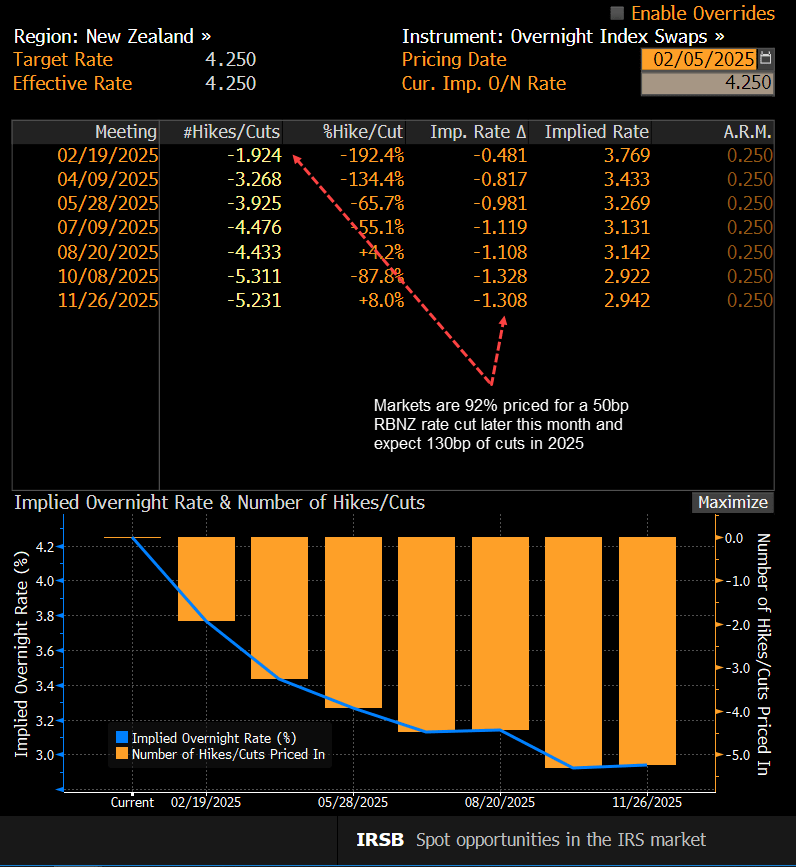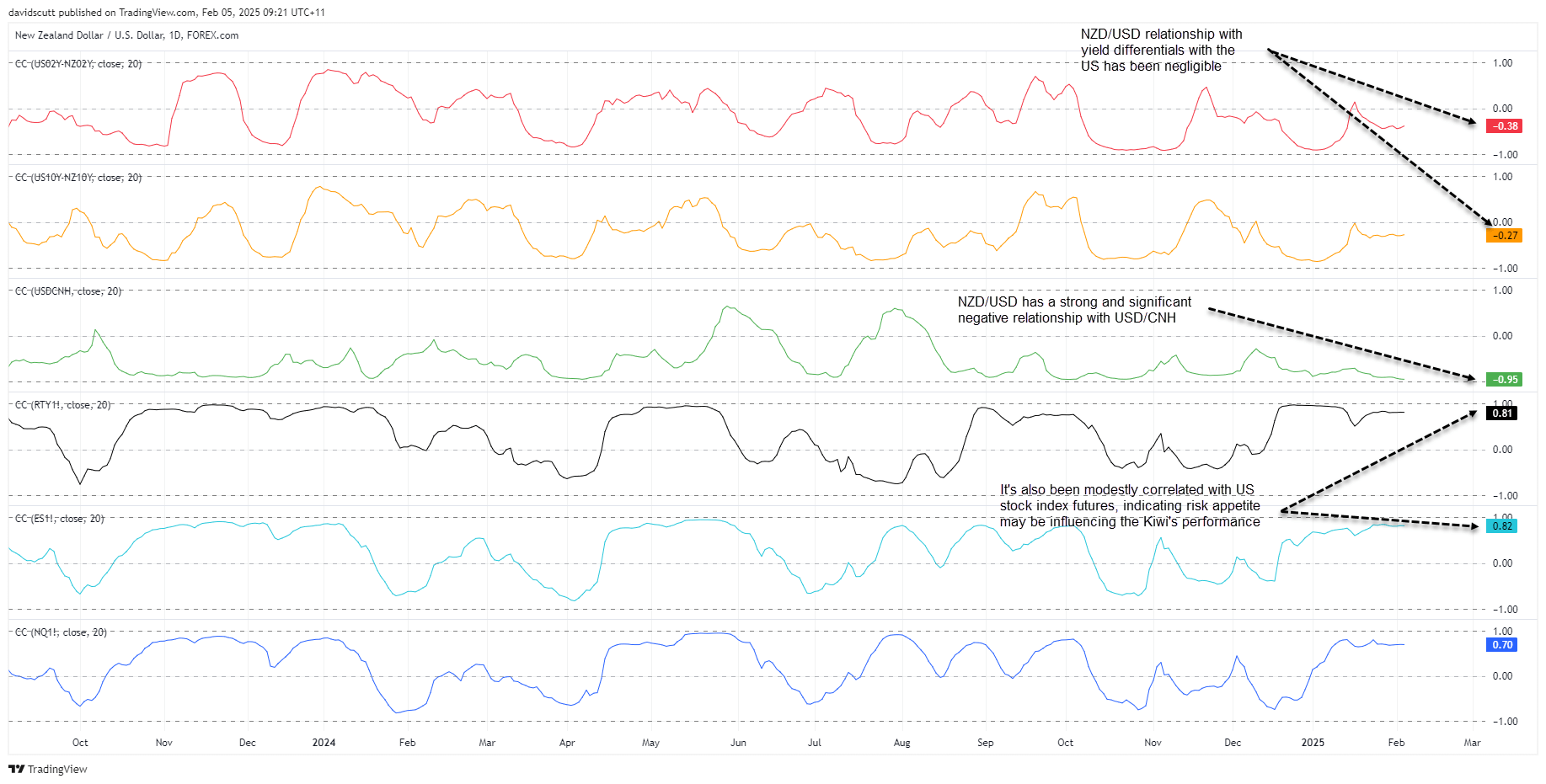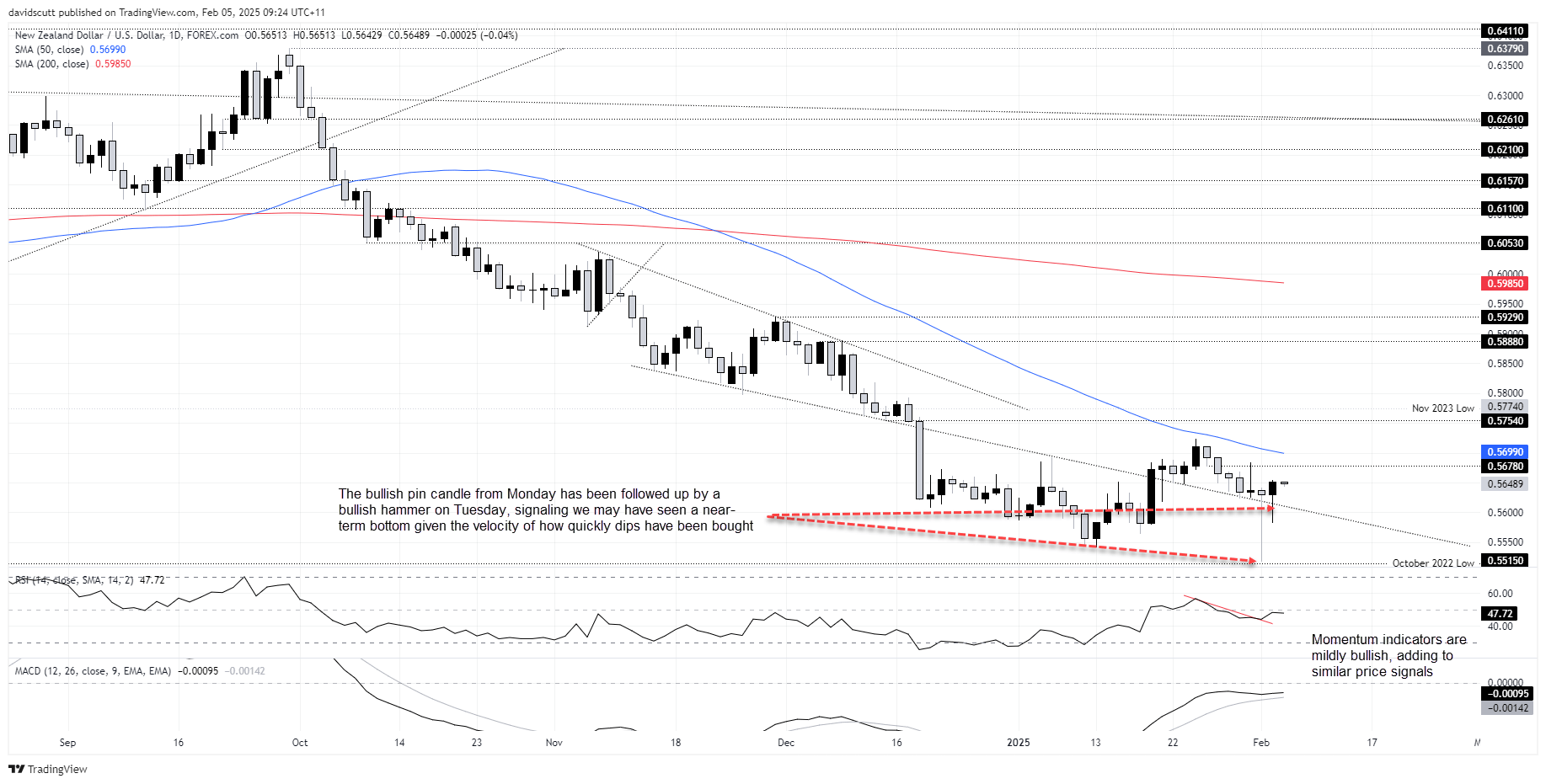NZD/USD: Surging Unemployment Keeps RBNZ on Aggressive Rate Cut Path
2025.02.05 03:22
- NZ unemployment hit 5.1%, the highest since 2020
- Underutilisation climbed to 12.1%, reinforcing labour market slack
- Private sector wage growth slowed to 3% over the year
- Markets 92% priced for 50bps RBNZ rate cut on Feb 19
Summary
New Zealand’s unemployment rate climbed to levels not seen since late 2020 in the December quarter, increasing the likelihood of the Reserve Bank of New Zealand (RBNZ) delivering a third consecutive supersized rate cut later this month. With greater certainty around the domestic rates outlook, remains driven by offshore factors, particularly risk appetite and sentiment towards China.
Jobs Report Details
Unemployment hit 5.1% in Q4 2024, the highest level since late 2020. Combined with underemployed workers, that pushed underutilisation up to 12.1% from 10.7% a year earlier, highlighting growing slack in the labour market.
Employment fell by 32,000, with men accounting for 85% of the decline. The drop was concentrated in trades and machinery-related jobs, with full-time employment for men plunging while part-time roles increased. The participation rate slipped to 71%, down from 71.2% three months earlier, partially cushioning the rise in unemployment.
Private sector wage growth slowed, lifting 0.6% for the quarter and 3% over the year. With underutilisation climbing and employment falling, wage pressures are fading, reinforcing a shift towards looser labour market conditions and the need for additional monetary policy support from the RBNZ.
RBNZ Seen Slashing Rates Again
As seen in the table below, overnight index swaps—reflecting where markets see New Zealand’s cash rate in the future—are 92% priced for the RBNZ to deliver a 50bp rate cut on February 19. It would be the third consecutive jumbo cut, leaving the cash rate 175bps lower than before the easing cycle started.
In the past, the RBNZ had a reputation for springing surprises, but that trend has faded recently with the bank cutting rates in line with market pricing at the past two meetings.
Source: Bloomberg
NZD/USD: Sentiment-Driven China Play
Rather than New Zealand’s rate outlook driving NZD/USD movements, the chart below suggests risk appetite—especially towards China—is playing a far greater role.
For instance, the rolling 20-day correlation with USD/CNH—the offshore-trade against the —sits at -0.95, indicating a very strong inverse relationship. While not to the same degree, the Kiwi’s positive correlation with US equity index futures has also been relatively strong, particularly with more cyclical indices such as and .
In contrast, yield spreads between the United States and New Zealand over short and longer timeframes have shown no significant relationship in early 2025.
Source: TradingView
NZD/USD Dip Buyers Out in Force
Even with the extreme volatility seen in recent weeks, NZD/USD remains observant of known technical levels—as seen on the daily chart below—with the price continuing to interact with the downtrend established midway through November.
Source: TradingView
Yes, it has traded through the trendline on multiple occasions, but none of the bearish breaks have stuck, with price surging back above into the session close. When you throw in Monday’s bullish pin candle—an obvious bottoming signal—the price action suggests a near-term floor may have formed around the October 2022 low of .5515. The bullish hammer candle on Tuesday reinforces this view.
Momentum indicators are offering mildly bullish signals, with MACD trending higher and RSI (14) breaking a minor downtrend earlier in the week. As such, a marginally bullish bias is favoured for now.
Topside levels of note include .5678, the 50-day moving average, the January 24 high around .5720, and .5754. A break and close beneath the November 2024 downtrend would nix the bullish bias. A sustained break below .5515 would turn it outright bearish.
Original Post








